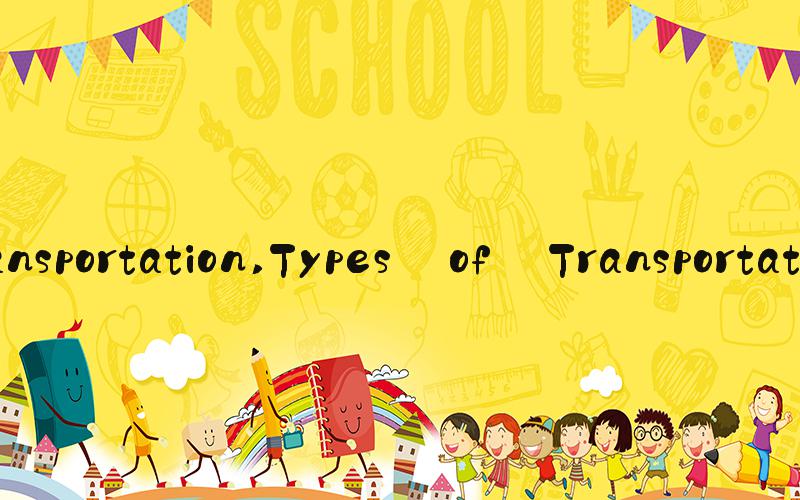AI答案
 Introduction
IntroductionTransportation is an essential aspect of modern society, connecting people and goods across the world. It is the backbone of any economy, facilitating trade, commerce, and movement of people. From highways to railways, waterways to airways, transportation has evolved over the years, and technology has played a significant role in shaping the transportation infrastructure. Today, we will examine the various types of transportation available and their impact on society.
Types of TransportationThere are various modes of transportation, and each has its advantages and disadvantages. One of the most prevalent modes of transportation is road transport, which involves the use of vehicles, such as cars, buses, and trucks, to transport people and goods from one place to another. Railways are also a critical means of transportation, offering a more efficient mode of long-distance travel. Waterways, such as rivers and canals, are significant for transportation, particularly for bulk and heavy transportation. Air transport is another mode of transportation, allowing people to travel to distant locations quickly. Lastly, we have the pipeline transportation used for oil, gas, and water.
Impact on the EnvironmentThe increased use of transportation has had a significant impact on the environment, particularly in terms of pollution. Road transport is one of the leading contributors to air pollution, with vehicles emitting harmful pollutants into the atmosphere. Water transport, particularly shipping, also contributes to pollution in the form of oil spills and other forms of waste. Air transport, while offering fast travel, has also contributed to the depletion of the ozone layer, contributing to climate change. The use of sustainable transportation, such as electric cars, trains, and boats, has been proposed as a more eco-friendly alternative to traditional modes of transport to reduce environmental impact.
Economic ImpactTransportation is crucial to the economy, with efficient transport infrastructure leading to increased economic productivity. A well-developed transportation system can help reduce costs and improve the efficiency of moving people and goods. This could result in lower production and transportation costs, making goods and services more affordable to consumers, leading to increased economic activity. Additionally, the transportation industry provides employment opportunities to millions of people worldwide, driving economic growth and development.
Technological AdvancementsTechnology has played a significant role in shaping transportation infrastructure. The advent of the automobile revolutionized road transport, making it more accessible to people. The use of computers and other technological advancements has also had an impact on the industry, with advancements such as online booking, GPS tracking, and real-time traffic updates making transportation more efficient and convenient. The use of autonomous vehicles and the implementation of smart transport systems that can communicate with each other and adjust routes in real-time are some of the technological advancements that could shape the future of transportation.
ConclusionIn conclusion, transportation is critical to modern society, facilitating the movement of people and goods, driving economic growth, and development. While technology has played a significant role in shaping the transportation infrastructure, it has also contributed to environmental problems. Sustainable transportation remains an essential issue, and efforts should be made to promote the use of eco-friendly transportation methods. Overall, transportation has revolutionized the way people live and work, and it will continue to impact the world positively as technology advances.
